TUE 1 NOV // 8:00 AM – 5:30 PM
Primary Content Focus: Stroke
Secondary Content Focus: Clinical practice (assessment, diagnosis, treatment, knowledge translation/EBP)
After mild stroke, many clients are thought to achieve full recovery and do not receive any rehabilitation. Current literature, however, indicates that persons with mild stroke experience deficits in the performance of complex daily living activities. In this instructional course, we will describe best practices based on evidence in the areas of acute care, care transitions, health management and maintenance, driving, vision, and return to work for the interdisciplinary stroke team. The morning discussion will focus on defining mild stroke and acute care and the afternoon will focus on return to the community and post-acute care.
LEARNING OBJECTIVES
- Define and recognize mild stroke
- Identify appropriate outcome measures for mild stroke survivors
- Describe best evidence in mild stroke rehab using case examples
- Critique current mild stroke practice based on the evidence
- Describe evidence based treatments in health self management and maintenance, driving, and return to work
KEY WORDS
- stroke
- rehabilitation
- severity of illness
- disease management
FACULTY
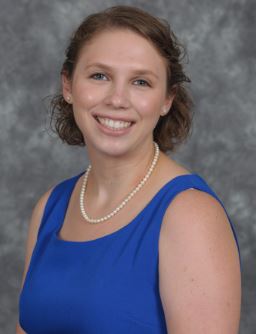 Jaclyn Schwartz, OTR/L
Jaclyn Schwartz, OTR/L
Assistant Professor, Florida International University
Dr. Schwartz is an Assistant Professor in the Occupational Therapy Department at Florida International University. She is a completed her clinical training in occupational therapy at Washington University in St. Louis and her doctoral training in health sciences at the University of Wisconsin-Milwaukee. She has worked clinically as an occupational therapist across the continuum of care in small community hospitals and large trauma centers.
Carmen Capo-Lugo, PT, PhD
Postdoctoral Fellow, Northwestern University, Center for Healthcare Studies
Dr. Capo-Lugo is a post-doctoral fellow in Health Services and Outcomes Research at Northwestern University Feinberg School of Medicine. She holds a PhD in Neuroscience, a Master of Science in Physical Therapy and a Graduate Certificate in Health-focused Patient Management. Her research focuses on identifying and optimizing processes of care associated with neurorehabilitation in order to promote long-term patient recovery. Specifically, Dr. Capo-Lugo is interested developing patient-centered approaches to neurorehabilitation that provide continuity of care between acute rehabilitation and long-term community recovery for individuals with acquired neurological disabilities. Through her career Dr. Capó-Lugo has focused her research endeavors on individuals post-stroke. Currently, she utilizing mixed-methods to identify facilitators and barriers to participation in community-based physical activity and to tailor a web-based program to promote long term maintenance of physical activity after rehabilitation discharge in the population post-stroke. Her research is funded through a Switzer Fellowship from the National Institute on Disability, Independent Living and Rehabilitation Research and a postdoctoral fellowship (F32) from the Agency for Healthcare Research and Quality.
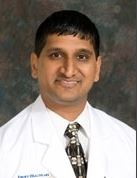 Samir Belagaje, MD
Samir Belagaje, MD
Assistant Professor, Emory University
I am a board certified Neurologist with specialty training in vascular neurology but have a major interest in stroke rehabilitation. During my fellowship training, I received training in clinical research via the T-32 training grant. I have served as the site PI for the RECOVER stroke rehabilitation trial and as a co-investigator in several multicenter acute stroke treatment trials (ALIAS2, TREVO, SWIFT PRIME), stroke prevention trials (SAMMPRIS) and trials in stroke rehabilitation (I-CARE, StrokeGEN). My major area of interest is in stroke rehabilitation and the use of transcranial magnetic stimulation to enhance recovery. Since my appointment at Emory University, I have worked as faculty on the stroke service of Emory University Hospital and Grady Memorial Hospital, two Certified Comprehensive Stroke Centers within the NIH StrokeNet. Currently I am a co-investigator on several NIH sponsored trials including POINT and SHINE as well as a virtual reality pilot for stroke recovery (Dr. Wolf). I joined Dr. Buetefisch’s lab 4 years ago and have been assisting Dr. Buetefisch in NIH sponsored studies using drugs and TMS to enhance use dependent plasticity in healthy subjects and stroke recovery.
In my clinical work, I take care of stroke survivors and routinely follow “mild” stroke. Consequently, I am familiar with the issues these folks face and have developed protocols to treat their deficits and work with them.
Megan Danzl, PT, DPT, PhD, NCS
Assistant Professor, Bellarmine University
Dr. Danzl holds a doctorate in physical therapy (PT) from Bellarmine University and a PhD in Rehabilitation Sciences from the University of Kentucky. She is board certified in neurologic PT through the American Board of Physical Therapy Specialties. Clinically, she has practiced as a licensed PT primarily in acute care and inpatient rehabilitation settings for 10 years, of which, 4 years were on a specialized stroke unit. She continues to practice clinically while working full-time as an assistant professor in the PT program at Bellarmine University in Louisville, KY. In this program, she is course director for the Neurological Rehabilitation course and core faculty in the Neuroscience and Neurology courses. She serves as the Education and Research Coordinator for the Bellarmine University and Norton Healthcare Neurologic PT Residency. In regards to scholarship specific to stroke, she has 4 peer-reviewed publications and 20 conference presentations (3 international, 9 national, 8 regional), including both quantitative and qualitative research and topics such as outcome measures in stroke, the experience of stroke for patients and caregivers, and transcranial direct current stimulation and gait training post stroke. She has taught 3 continuing education courses about stroke rehabilitation across the continuum of care in the past 2 years for regional healthcare organizations. She is Editor-in-Chief of “Physical Therapy – Neurology” with StatPearls. She has served as a peer reviewer for the Journal of Allied Health and Physiotherapy Theory and Practice and is the invited guest editor for the October 2016 volume in Neurorehabilitation about engagement.
Kristen Mauk, PhD, DNP, RN, CRRN, GCNS-BC, GNP-BC, ACHPN, FAAN
Professor, Colorado Christian University
Dr. Mauk is currently a Professor of Nursing at Colorado Christian University. She was also a Professor of Nursing at Valparaiso University in Indiana for nearly 25 years and held the first Kreft Endowed Chair for the Advancement of Nursing Science. She earned a BSN from Valparaiso University, an MS in Adult Health from Purdue University, a PhD from Wayne State University, a Post-Master’s GNP certification from University of Virginia, and a Doctor of Nursing Practice (DNP) degree from Valparaiso University. Dr. Mauk has more than 30 years of experience in chronic illness, rehabilitation, and gerontological nursing, and teaches in these specialties at both the graduate and undergraduate levels. She several certifications including rehabilitation and gerontological nurse practitioner and clinical nurse specialist. She has authored or edited eight books, served on editorial boards for Rehabilitation Nursing and Geriatric Nursing, and written numerous articles. She is the co-founder and President of Senior Care Central/International Rehabilitation Consultants. Dr. Mauk is also past president of the Association of Rehabilitation Nurses (ARN) and has served ARN in many roles including the Council of Leaders, Editor of the Core Curriculum, PRN course faculty, and the task force to develop the ARN Professional Rehabilitation Nursing Competency Model. Some of Dr. Mauk’s recognitions include: Nominee for the 2016 National Robert Foster Cherry Award for Great Teachers, AJN Book of the Year Award, CASE/Carnegie Indiana Professor of the Year, VU Caterpillar Award for Excellence in Teaching, ARN Educator Role Award, and the ARN Distinguished Service Award.
Mark Kovic, OTD, OTR
Associate Professor & Assistant Program Director, Midwestern University
My educational, clinical, and research backgrounds demonstrate my experience to present about return to work for adults with mild stroke. I have nearly 20 years of clinical experience all with adults with neurological challenges including stroke. The most recent portion of my career includes working in day rehabilitation including return to work for individuals with stroke including mild stroke. I have been involved with stroke research for more than a decade including topics related to robotics, motor imagery, and community integration.
 Shannon Scott, OTD, OTR/L
Shannon Scott, OTD, OTR/L
Clinical Assistant Professor, SUNY Stony Brook Southhampton
I have over 25 years of experience as an OT practitioner having specialized in the field of neurorehabilitation for the majority of my career. As a clinician and Neuroscience Team member I provided services, to include return to work, to individuals with stroke of varying severity. Until recently transitioning into academia, I provided continuing education and consultation services on stroke, upper extremity motor recovery, technology and best practice. My areas of interest are stroke, community integration, and best practice and I am an early career researcher having recently completed a study on return to work services for those with stroke as part of the requirements for my OT Doctorate.
 Pamela Roberts, PhD, OTR/L, SCFES, FAOTA, CPHQ, FNAP
Pamela Roberts, PhD, OTR/L, SCFES, FAOTA, CPHQ, FNAP
Director of Academic and Physician Informatics and Physical Medicine and Rehabilitation, Cedars-Sinai Health System
Dr. Roberts is the Director and Professor of Physical Medicine and Rehabilitation and Neuropsychology at Cedars-Sinai Health System, Los Angeles, California. She has worked throughout the continuum of care as a clinician, administrator, educator, and researcher. She has been instrumental in the development and implementation of system changes as well as rehabilitation programs across the continuum of care within a large academic medical center. She also teaches at the University of Southern California, and guest lectures at other local universities, a national FIM trainer and consultant for Uniform Data System in Buffalo, New York, and a CARF surveyor for CARF…Commission on Accreditation for Rehabilitation Facilities. She is involved in the American Congress of Rehabilitation Medicine, American Occupational Therapy Association, National Quality Forum-Membership Partnership for Post Acute Care/Long Term Care quality measures and All-Cause Admissions and Readmissions Steering Committee, past chair of the California Hospital Association Center for Medical Rehabilitation Services, and past member of the California Hospital Association Post Acute Care board. Dr. Roberts is a member and Chair Elect of the American Congress of Rehabilitation Medicine (ACRM) Stroke Interdisciplinary Special Interest Group and Chair of the ACRM Program Committee. Additionally, she is Chair for the Accreditation Council for Occupational Therapy Education (ACOTE). Dr. Roberts has served as principal and co-investigator on a variety of research projects and has provided a variety of workshops and consultations on rehabilitation, informatics and health services research topics regionally, nationally, and internationally.
Chetan Phadke, PhD
Scientist, West Park Healthcare Centre
Dr. Phadke was trained as a physiotherapist in India and received his PhD in rehabilitation science from University of Florida. Dr. Phadke has several years of experience working in the area of neurorehabilitation in persons with SCI, stroke, MS, and cerebral palsy. He has published over 40 peer-reviewed papers in leading journals and is currently a scientist in the Spasticity Research Program at the West Park Healthcare Centre and has faculty positions in the Department of Physical Therapy, University of Toronto and the Faculty of Health, York University, in Toronto, Canada. Dr. Phadke’s current interest is in developing a better understanding around the functional impact of spasticity and the application of new gait training methods to persons with spasticity.
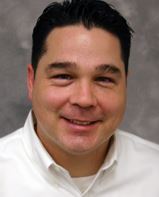 Jess Holguin, OTD, OTL
Jess Holguin, OTD, OTL
Assistant Professor, University of Southern California
Dr. Holguin is an Assistant Professor of Clinical Occupational Therapy at the University of Southern California’s Keck Hospital, with an appointment through the Chan Division of Occupational Science and Occupational Therapy. He works extensively with individuals who have experienced head injury, spinal cord injury, stroke, critical illness, multi-trauma, orthodepic conditions and other medically complex conditions, across the continuum of care. His clinical expertise derives from many years of experience, including his time as senior clinician for neurorehabilitation at St. Jude’s regional brain injury rehabilitation center. Dr. Holguin has been an invited lecturer on topics such as neurorehabilitation, cognition and visual perception at the University of Southern California and the Braille Institute/Center for the Partially Sighted. Additionally, he regularly presents at state and national occupational therapy association conferences on topics such as neurocognitive function and neuroplasticity. In addition to his clinical work, Dr. Holguin serves as mentor to faculty, residents, students, and interprofessional colleagues. Furthermore, he continually contributes to the development of groundbreaking clinical approaches targeting enhanced participation in meaningful activities. As a former member of the USC Well Elderly 2 randomized controlled trial team, Dr. Holguin contributed to the analysis and interpretation of research findings. His research interests include neurological rehabilitation, neuroplasticity, successful aging and the interrelated nature of well-being and participation in meaningful activity.
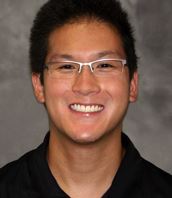 John Margetis, OTD, OTR/L
John Margetis, OTD, OTR/L
Assistant Professor, University of Southern California
Dr. Margetis primarily works with individuals in the medical and neurosurgical intensive care units at Keck Hospital of USC who have experienced acute neurological and cardiopulmonary decline. As a doctoral resident he authored a position paper defining the role of occupational therapy in acute care settings, and has been an invited lecturer on congenital amputations at USC and Children’s Hospital Los Angeles.
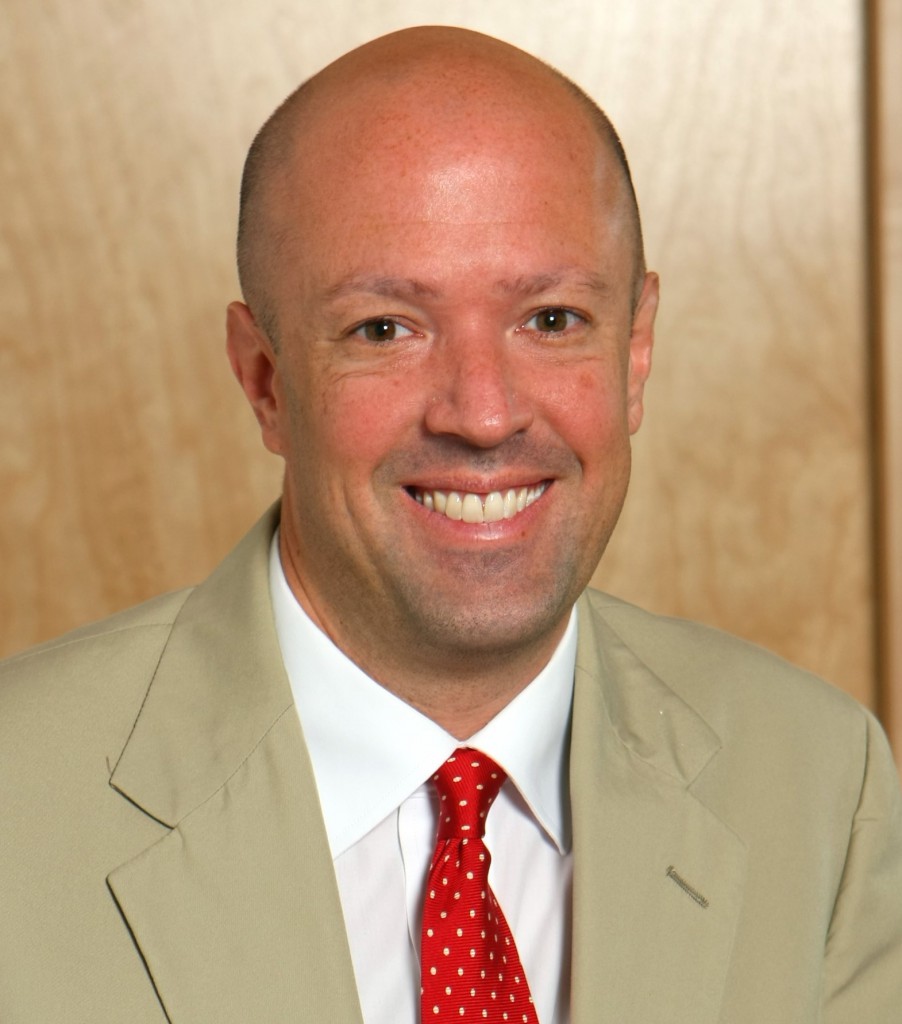 Stephen Page, PhD, MS, MOT, OTR/L, FAHA, FACRM
Stephen Page, PhD, MS, MOT, OTR/L, FAHA, FACRM
Associate Professor, The Ohio State University
I develop and test approaches that increase function and independence after stroke and other neurologic diseases. I have produced many “firsts” in neurorehabilitation, developing and showing efficacy of mental practice, portable robotics, modified constraint-induced therapy, functional electrical stimulation, among other innovative strategies. I have held uninterrupted extramural funding for nearly 15 years, including 8 NIH grants and 5 grants from the American Heart Association (AHA). I have also published over 100 peer reviewed articles, delivered over 250 lectures nationally and internationally, and served as guest issue editor for 14 special issues of rehabilitative and neurological journals since 2001. I am also Associate Editor of The American Journal of Occupational Therapy, on the Editorial Board of The Occupational Therapy Journal of Research, and a fellow of both the AHA and the American Congress of Rehabilitation Medicine (ACRM); the only OT to hold both of these distinctions.
While “translation” is a common buzzword in academic circles, very few clinician scientists make efforts to actually speak regularly with non scientist audiences about their findings. To accomplish such translation, I have organized and chaired 8 regional, national, and international neurorehabilitation conferences, and I co-chaired the 2003 and 2004 international, joint meetings of the American Society of Neurorehabilitation/the ACRM as well as serving on the Board of Directors for these organizations. Locally, I created and co-direct the Ohio Neurorehabilitation Academy and take great joy in providing lunch and learns to clinicians. Finally, I have mentored well over 60 students over the years.
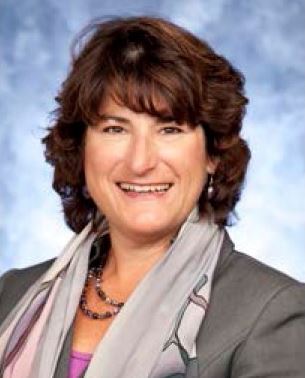 Michelle Camicia, MSN, CRRN, CCM, FAHA
Michelle Camicia, MSN, CRRN, CCM, FAHA
Director of Operations, Kaiser Foundation Rehabilitation Center
Ms. Camicia is the director of Kaiser Foundation Rehabilitation Center, Kaiser Permanente (KP) Northern California’s inpatient rehabilitation facility. In this role, she is responsible for quality, service, accreditation, research, personnel management, transitions oversight, and leadership of the inter-professional team. She is co‐director of the KP Center of Excellence for Individuals with Disabilities, member of the KP Diversity Leaders, the KP National Disabled Populations Support Council, and chairs the local Diversity Committee. Ms. Camicia is currently enrolled in the PhD in Nursing and Healthcare Leadership program at the Betty Irene Moore School of Nursing at the University of California, Davis. She is active in the industry as a past president of the Association of Rehabilitation Nurses (ARN) and surveyor for the Commission on Accreditation of Rehabilitation Facilities. She currently serves on the NIH Advisory Board for Medical Rehabilitation Research, the American Heart Association/American Stroke Association Council on Cardiovascular Nursing, State of the Science Stroke Nursing Symposium Planning Committee, the Editorial Board, Rehabilitation Nursing. She has published many manuscripts related to rehabilitation health services, in addition to several papers on care coordination and caregiving issues in people with disabilities. Ms. Camicia was the first author for the ARN white paper, “The Essential Role of the Rehabilitation Nurse in Facilitating Care Transitions” and “The Value of Nursing Care Coordination: A White Paper of the American Nurse’s Association”. She has contributed to the advancement of rehabilitation and healthcare through her leadership and research.
One full day of Instructional Courses: $199 // Three full days: $399
WORLD PASS (from $599) is the best value if you attend the CORE Conference and just one instructional course.
CLICK HERE for pricing detail.
CONFERENCE HOME PAGE >>>
ALL PRE-CONFERENCE COURSES >>>
*Although significant changes are not anticipated, all schedules, sessions, and presenters posted on this website are subject to change.










